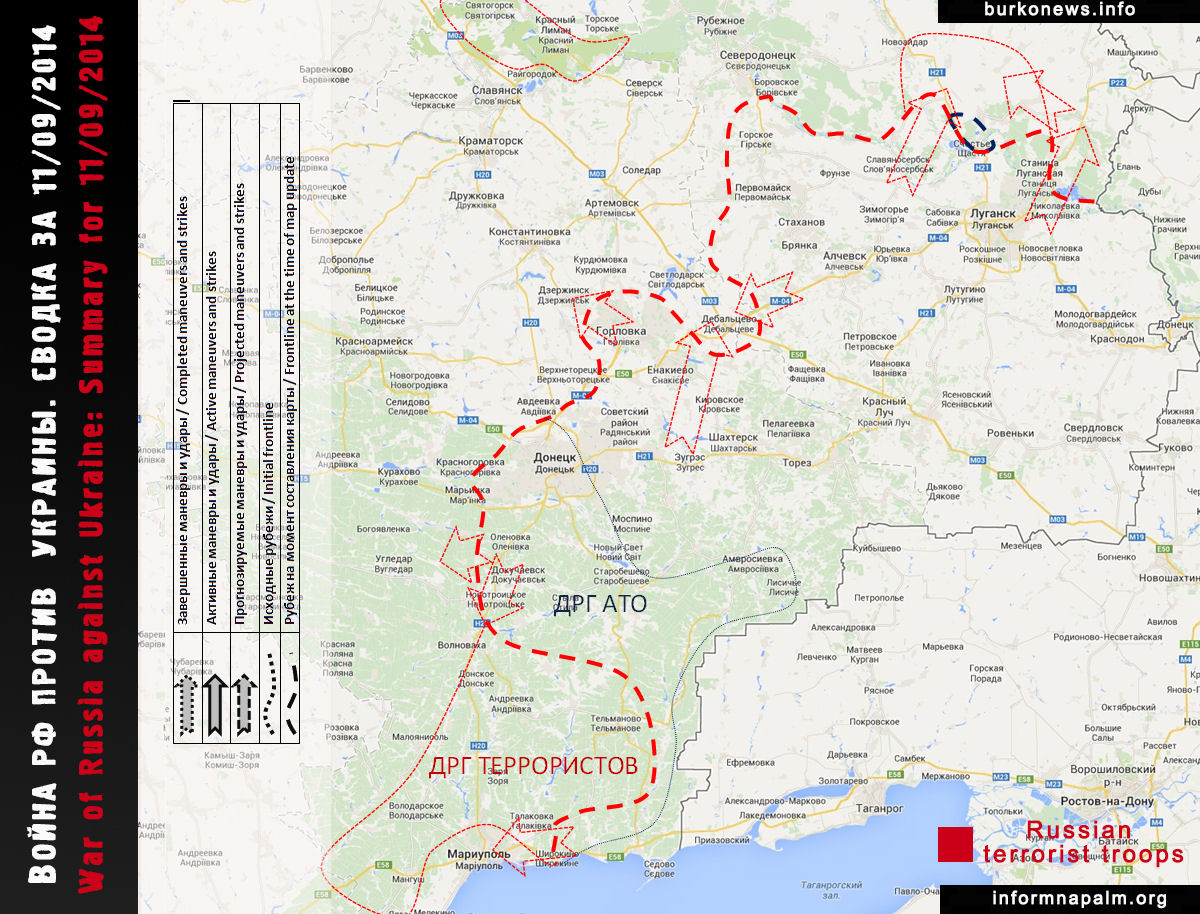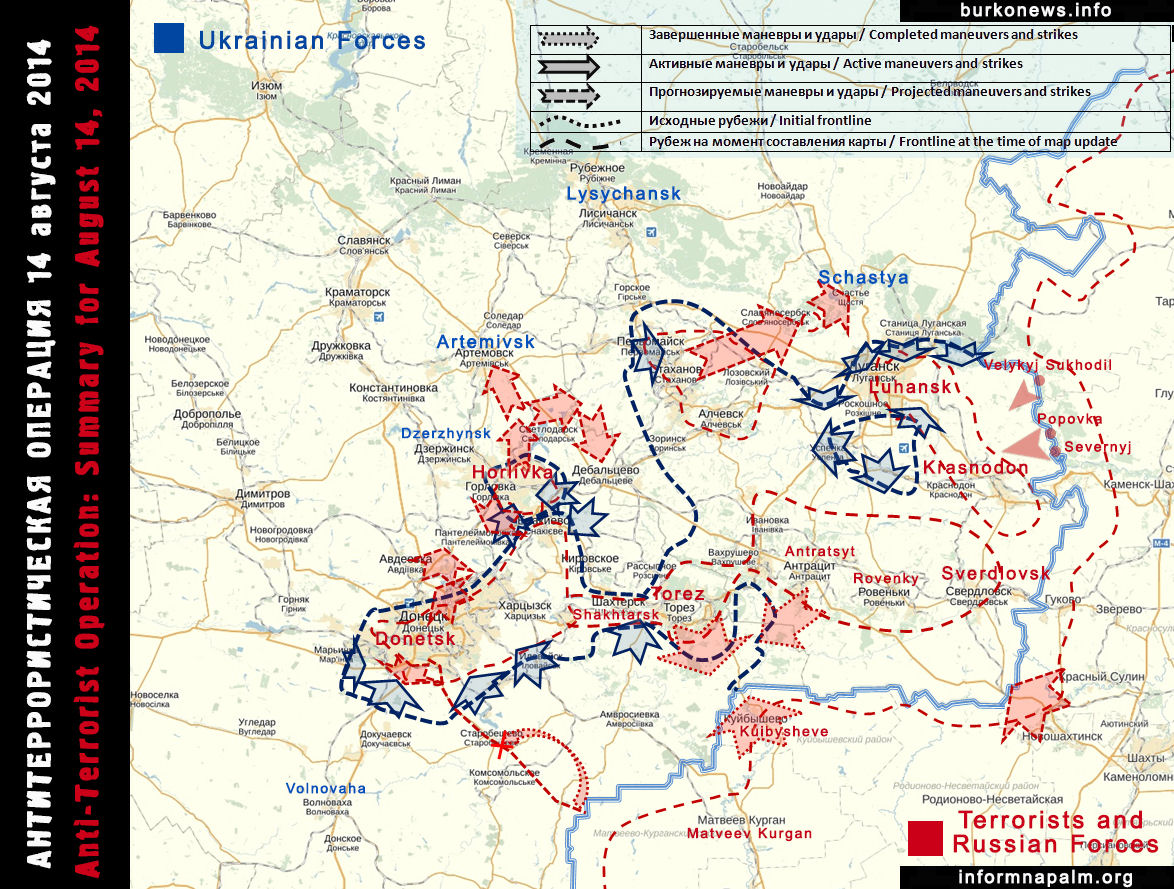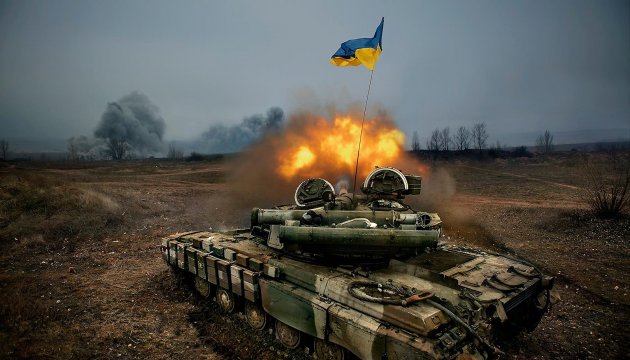By Jeffrey D. Stephaniuk
Twice in 2014 Ukrainian veterans of the Soviet war in Afghanistan sacrificially protected "our children." The first time was at the Maidan following the police brutality of November 30, 2013. There they came to the assistance of university students. The second time was during the start of the Russo-Ukrainian War when they trained young men to be soldiers.
Ivan Farion and Vasyl Sorochuk describe the life and death of one such veteran in the online newspaper, Vysokyi Zamok, on August 20, 2014. "At the price of his own life he saved scores of brother soldiers, the Afghan (veteran) from the volunteer battalion, Aidar," they write about 47 year old Andrii Marunchak. "His heroic death is the stuff of Hollywood movies."
The journalists interview his brother, Petro, who is also a soldier, and they construct this picture of Andrii: "In 2004 he participated in the Orange Revolution. Later, when the Yanukovych regime began discriminating against small businessmen, he went to the tax protests, defending the rights of the Afghan veterans and the Chornobyl (clean up workers). He was at the Euromaidan from beginning to end. Whenever someone asks, 'Why do you need to be bothered with all this?', he would reply, 'if not me, then who?'
"He went with his younger brother, Petro, to Donbas when the fighting began," they explain. No one in their families knew where they were. They told their wives they would be guards working at a town in the Cherkasy province. "In reality, their "work" was with the 8th independent "Afghan" special forces of the Aidar battalion. "They had gone there to teach 20 year old "child-soldiers" how to fight properly and to avoid unnecessary casualties.
In particular, they taught tactical warfare, how to gain an orientation of any terrain you might happen to be in, how to hold firearms correctly and how to fire them, how to determine the safest places to sleep, and how to conduct patrols. Other topics included how to dig in properly, whether tanks or men, as well as camouflage techniques. In other words, 'how to win and survive at war.'"
The day Andrii died, "their orders were to liberate the village of Novosvitlovk in the Krasnodonsk raion. It was a strategic location for the movement of heavy artillery as well as a major supply line from the Russian border for the "hrad' rockets, along with grenades, small arms, ordnance, troop reinforcements, and finally narcotics..."
The Aidar troops were so successful that they even took 40 prisoners, some of whom were high ranking officers of the Russian FSB. "Some men told us they were coerced into fighting, while others came for the money, up to $100 a day..." In his interview, Petro Marunchak explained that "we were expecting our tanks from Krasnodor to come and reinforce our positions." He said that "as soon as we heard the drone of the tank engines from the direction of Stanytsia Luhansk, we thought that maybe our men inadvertently went too far and were now returning." His brother removed his protective gear and went with another soldier to greet the tanks. "Our troopers in their tank took a good look down the road through binoculars and shouted, 'Wait, those are Russian T-72s!' By this time my brother was within 50 meters of the enemy, and was completely exposed and vulnerable. The tank's machine gun fired, hitting his lower body and legs.
Although he was seriously wounded, Andrii managed to throw a grenade into the Russian tank. As a result, the explosives in the '72' detonated, and its turret flew 20 meters into the air..." Simultaneously, our trooper fired two cannon shells that hit their targets (for which I must thank him the next time I see him), and the shells crippled two additional enemy tanks. Everyone knows the character Rambo from the movies, but his battles pale in comparison to the hell we found ourselves in." The consequence of the tank shelling was that "the disabled tanks blocked the advance of the other 5 Russian T-72s... if it weren't for Andrii, or if the enemy tanks had fired its cannon first, everything would have ended fatally for the 80 men of our special forces, including me..."
Andrii was evacuated with the help of the one Ukrainian tank, using its armor for protection while the men reached his position. Fond remembrances of him included the following: "It was gratifying for Andrii Marunchak to know that someone needed him. He did everything possible to help someone else..."
Life in the Anti Terrorist Zone is like a different world. People often don't understand the patriotism of the volunteer soldier, and in fact go about their daily lives as if there were no war. Petro Marunchak suggests that anyone "should spend five minutes in the main military morgue in Kharkiv, where they will see people of their own age, dead, with their heads torn off, or feet and hands. Imagine this: our heroic soldiers have been holding back the onslaught of the enemy for months now, at the cost of their own lives. All this time, as if in mockery, nothing much has changed with the night life, the clubs... It affects the morale of the soldier. He feels like he is a second class citizen when in fact everyone must do their part for Ukraine..." Asked about life after the war, Petro explained that "before this last battle, Andrii told him, 'my brother, let's swear an oath that if one of us dies, the other will care for our children' (I have 3 children, he has 2). And so we swore an oath. I won't break it, but first I will defend Ukraine."
[hr]Source: wz.lviv.ua, summarized and translated by Jeffrey D Stephaniuk, Canada





